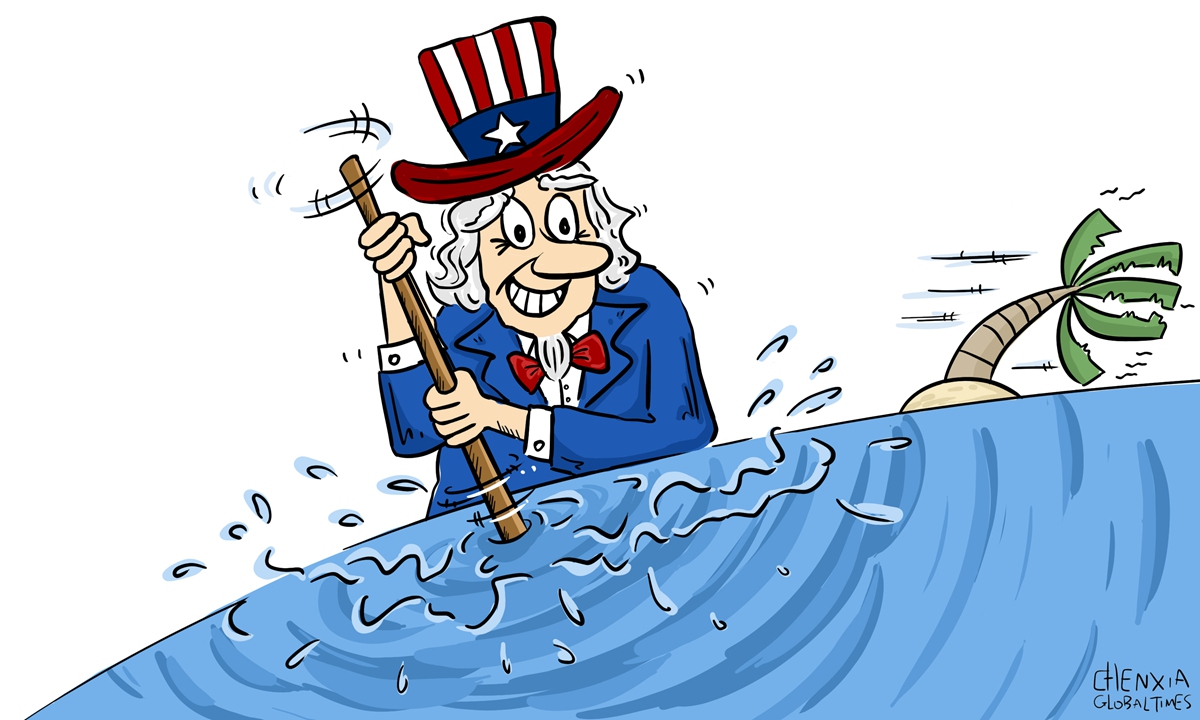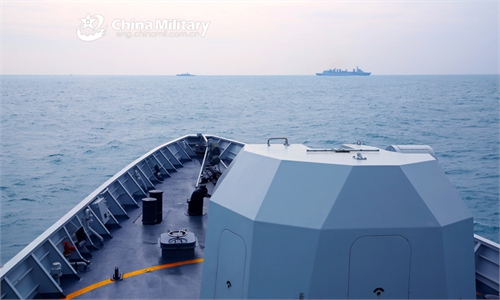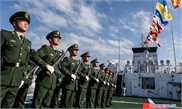Biden's South China Sea policy has Cold War currents

Illustration: Chen Xia/GT
Within US President Joe Biden's first 100 days in office, the outline of US' new foreign strategy is becoming clearer and clearer. The South China Sea issue is one of the most frequently mentioned topics by the Biden administration.
As some observers mentioned, there are similarities between the Biden administration's South China Sea policy and those of Biden's two predecessors. But behind the seemingly identical actions, lies a very different logic. The new policy has more Cold War-like overtones, which are reflected in several aspects.
First, rebuilding alliances has become the primary task. The Trump administration did not truly establish an offensive and defensive alliance with the Philippines although it had confirmed, for the very first time, that US-Philippine Mutual Defense Treaty applies to the South China Sea. Besides, Manila feared that the US-Philippine cooperation in the South China Sea would affect China-Philippine economic and trade relations. Thus, it tried to reduce its support for Washington's deployments and operations in the region.
However, since Biden came to power, his key cabinet members have repeatedly pledged to protect Philippine warships and official vessels if they are under attack in the South China Sea. The Biden administration's South China Sea policy is oriented toward realism that prioritizes the US-Philippine military and security cooperation. Because of that, it has won positive responses from the Philippine side.
Second, competition plus containment rather than direct conflict is the principle of the Biden administration's South China Sea policy. From 2017 to 2020, the US military operations in the region were aimed at reconnoitering and sounding out China's bottom line.
Under the Biden administration, the US continues to pursue the strategic goal of dominating the regional order with overwhelming advantages in the balance of power. It has continued the so-called freedom of navigation operations in the South China Sea. However, the US sees the South China Sea as an important leverage of its "long-term strategic competition" with China, as it does not want to engage in direct military conflict with China in the waters.
A third change is to replace unilateralism with mini-multilateralism. Although the Trump administration has repeatedly asked countries such as Japan, Australia and the UK to intervene in the South China Sea issue and restart the Quad dialogue, the US' unilateral demands to rope Japan, Australia and India into so-called freedom of navigation were not welcomed by the three countries.
Nonetheless, Biden promoted the first summit of Quad leaders on March 12, paying more attention to coordinating the positions of the four countries to hold a common ground. During the summit, they mentioned challenges to the regional order in the South China Sea, unanimously pointing the finger at China. This series of actions shows that the mini-multilateralism based on security dialogue and cooperation among the Quad countries is an important principle of the Biden administration's policy on the South China Sea.
Biden and his team hope to lead the US back to the dominant position in international affairs, which it has maintained for a long time since the World War II. Biden said in February that China and the US "need not have a conflict," but that both sides were likely to engage in what he called "extreme competition." The Biden administration's South China Sea policy has attached great importance to US allies within and outside the region, this precisely reflects its Cold War mentality.
But the Biden team understands that it's not in the US interest to engage in a costly war that has no chance of winning. Facing China's growing military strength and regional influence, the US believes resorting to the traditional strategy of relying on allies and partners is the best option for it to establish a new regional order dominated by the US.
After his first 100 days in office, Biden's South China Sea policy will become further clearer with the release of important documents such as the US National Security Strategy and the implementation of its maritime operations. It can be anticipated that Washington's South China Sea policy will likely include deploying more military force presence in the Philippines, expanding Quad mechanism to in the region, and exerting influence on the South China Sea Code of Conduct negotiations.
The Biden administration, which pursues rational realism and is adept at grand strategic designs and international political struggles, can be more concerning than the reckless and extreme Trump administration. In the foreseeable future, ASEAN will become more divided over South China Sea issues in the Biden era. The conflicts brought about by geopolitical competitions and maritime disputes in the South China Sea will become more challenging and uncertain.
The author is an assistant research fellow at National Institute for South China Sea Studies. opinion@globaltimes.com.cn



